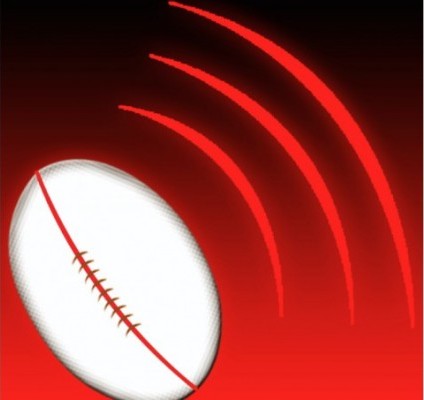Tolkin Talks Eagles
Tolkin Talks Eagles
Goff Rugby Report Editor Alex Goff sat down with USA Men’s 15s Head Coach Mike Tolkin Wednesday to go over not nay the Rugby World Cup but the last four years of his coaching tenure.
During that time under Tolkin, the USA has won 11 games, lost 22, and tied 1, for a winning percentage of .338.
The 11 test match wins is third all-time among USA coaches, behind Jack Clark (16), and Tom Billups (12). The 22 losses is second all-time behind Clark (32). Billups had 20.
The wins came against Romania (twice), Russia (twice), Georgia (twice), Uruguay, Canada (three times), and Japan. The tie was with Uruguay. From 2012-2015, the USA never lost to a team ranked below them in the World Rugby rankings.
When Tolkin was hired, he and the USA Rugby Board of Directors agreed to a list of program goals. They were:
- Create a positive squad culture and attitude among the Eagles
- Create an excitement about following the Eagles
- Move up in IRB Rankings
- Create greater depth in the program
- Start to beat teams ranked higher than us
- Turn the scrum into a solid attacking platform prior to the RWC
- Defeat Canada 3/4 times we play them
- Qualify for RWC 2015
Of these, all were attained. Multiple observers and sources have agreed that the USA team culture and attitude was strong. The team repeatedly set attendance records on home soil, which certainly speaks to the excitement bullet points. The Eagles were ranked 18th when Tolkin took over, and are currently 16th.
In addition, Tolkin pointed to the fact that against Scotland, the USA entered halftime ahead, and having given up no tries, something that no USA team had ever accomplished.
We spoke with Tolkin on a few other topics.
Todd Clever
Clever spoke on his being dropped by the USA team here, and Tolkin has some responses:
“Todd was suspended for the PNC, and that was the only suspension he got,” said Tolkin. “When Scott LaValla was hurt, the key part of that was that he was going to be in our lock rotation. We needed cover at lock, and that’s why we went with Matt Trouville, who can play lock and is good in the lineout.”
Matt wasn’t the back row player that LaValla or Todd was, but he was an excellent lineout jumper and a good team guy.
Tolkin also released this response to Clever’s recent interviews and assertions:
“The facts are at best distorted,” said the statement. “When the indisputable facts are incorrect after months of devising them, such as whom our opponents were and where the team was playing on certain dates or ‘morning jog’ vs mandatory vigorous work-out, one must question the accuracy of the entire tale. In short, opinions posted on social media clearly reflect one’s motives.
“In 30 years of coaching, I have always acted with integrity and without ego, and I have absolutely no problem putting my reputation in front of anyone. Naturally, along the way there may have been disagreements in policy or tactics, but not my integrity, which would be backed by many respected individuals. No selection process is ever perfect – period. I am content that I have always acted with the best intent for the Eagles’ program.
“I solidly stand by our actions involving Todd and his suspension from the PNC, and the entire coaching staff and management have always supported this decision. The reasons for the suspension were clear and justifiable,”
Did the Coach Do a Good Job?
“You always wish you could have won some of the close ones,” said Tolkin. “There were definitely missed opportunities. In the World Cup there were games we knew we could win - but they there three Top-10 teams and a Top-12 team, and we could lose them all, too. Samoa and Japan were there to win. South Africa aside, the games reflect where we are right now as a rugby country as a team. We have moments of greatness and moments where we don’t execute and make some dumb mistakes.
“We all take credit and we all take blame. A guy could make a bad throw or a bad kick and everyone can see it. But if there’s a bad selection that’s on us.”
Scotland
Among the great missed opportunities was the World Cup game against Scotland, where the USA led at halftime and were outscored 33-3 in the second half.
There were several moments of bad luck in that game - some not-straight throws not called against Scotland, a very short advantage call on a knock-on that seemed unfair, and a pedantic penalty that called back a potential try-scoring play, and led to a try for the Scots. But there were other issues, too.
“We came out of the dressing room [at halftime] feeling pretty good,” said Tolkin. “But we also knew we had squandered lineouts in the first half and perhaps should have been leading by more. We got some rough calls in the second half, had four bad kicks, and some stupid penalties. Even with all of that, it was a nine-point game with a quarter to go. it was still a game.”
Selecting Down v South Africa
One decision that appears to have rankled former players and current fans alike was the decision to select a less-than-full-strength lineup against South Africa, a decision that resulted in the biggest loss and only shutout of the World Cup. Tolkin understands the frustration, but didn’t apologize for the decision.
“I am comfortable with the decision,” he said. “It sucks that we had to do it, and it’s not something you want to do. But we could play our best team out each game, and maybe you lose to South Africa by 20, 25, but the chance of beating them was remote. And then your players are banged up and not ready to compete against a fit, rested Japan team. All of a sudden that score piles up. It was a very difficult decision to make; it’s not easy for the coaching staff to do that and I understand that the fans are disappointed, but this was the decision we made.”
Preparation
Tolkin made some lineup changes during the summer and into the fall - not a lot, but a few. He came under some criticism on Goff Rugby Report for not playing Cam Dolan more, and some criticism for starting Danny Barrett and then shifting to Al McFarland. He also didn’t settle on a backup scrumhalf until late, and made a late change at fullback/wing.
But it’s more than that. Did the team have depth? Did the preparation going back to 2014 or 2013 do the job?
On the Wyles-Scully switch at fullback. “Chris had always been excellent ball-runner. As captain he was directing a bit on the field, and Scully was running the ball really well. It seemed a good move to make.”
Tolkin ultimately put Wyles back at fullback.
At scrumhalf, Shalom Suniula played early in the PNC, but then Niku Kruger was the backup despite not having much experience. Suniula carried a shoulder injury that affected his defense. “I wish,” said Tolkin, “that we had another month before we played the World Cup.”
On Cam Dolan: “You can make an argument for Cam. I like him a lot.”
And on Barrett: “I have always liked him and I still like him. But Al [McFarland] was doing a hell of a lot work.”
“As a country, our circumstances haven’t changed,” added the coach. “How is a guy like AJ MacGinty able to prepare to be a flyhalf - the quarterback - in the World Cup when he’s playing for Life University where he’s not really challenged? You could say the same about Seamus Kelly or Mike Petri. Where’s the weekly challenge?”
Playing more test matches this year was good, but it’s just a start.
“We don’t have players who basically all play together, and we only really had Australia that really tested us and showed us the pace of the top level of the game,” said Tolkin. “And form the time we beat Canada in Sacramento [in 2014] until the PNC [in 2015], we hadn’t had the full squad together in a year. So while you want to build cohesion, you can’t play 18 guys and ignore the rest.”
Tactics. Did the USA Kick Too Much?
“In the PNC we kicked a lot because we were really trying to nail down our exit game,” said Tolkin. “We kicked a lot more than we did in the other summer games. There were a couple of times [later on] where I would rather have run and we kicked. There were certainly times where I wouldn’t have kicked for sure.
“I get it from a spectator’s point of view,” he added. “In 2012 when I took over we wanted to really play from deep. But in 2013 teams punished us for trying to play out of our end. If you play out of your end too much you can get burned and you really have to be careful about where you play the game. Over the least two years, we’ve played 60% of the time on the other side of 50. Now we have to learn to be ruthless in converting that to tries.”
Developing International Players
Tolkin was asked if he should have taken more young players, and he said he wants to do that, but it’s a tough task because players have to get high-level experience. There is no competition level between club and international, with the exception of the ARC. Tolkin said while it’s not really his job to create competition between club and Eagles, he’s done what he can.
“We brought in sports psychologist Steve Durant to help guys mentally prepare,” said Tolkin. “And the new Six Nations competition will be huge because we will get six or seven more weeks of guys playing against higher competition, and they will mostly be domestic-based guys.”
But, he added, more needs to be done.
“The infrastructure is where we need big improvement,” he added. “We need to ID talent when the players are younger. We need a full-time environment for these guys where they can train like professional athletes. And as well as a training environment they need the right playing environment. They need high-pressure games week-in, and week-out. That could be a pro league, or pushing for a franchise in Super Rugby or Pro 12. I have been pushing for the latter in every report I’ve done.”
And Finally
Tolkin said he wants to continue as coach and added that he felt he'd done enough to continue to be coach. But, that decision is in the hands of the USA Rugby Board and Executive.
“The thing is, after three-plus years, the program is in a better place than it’s been. We’ve made progress. I feel good about that. We’re in the middle of the job, though. This is a project in this country that is not easy. We’ve made appreciable change."












